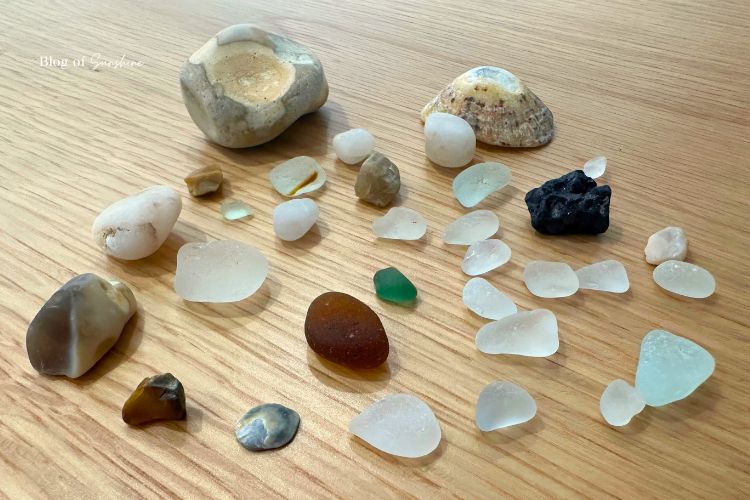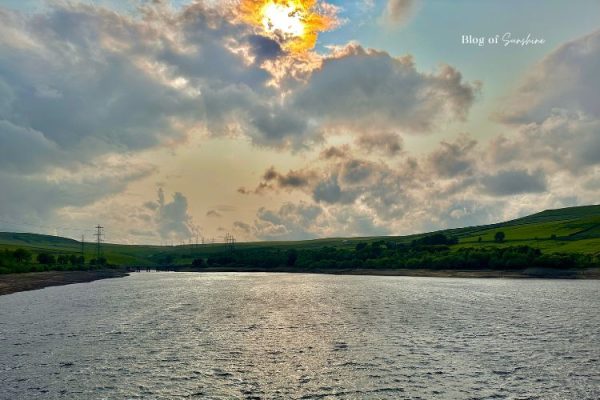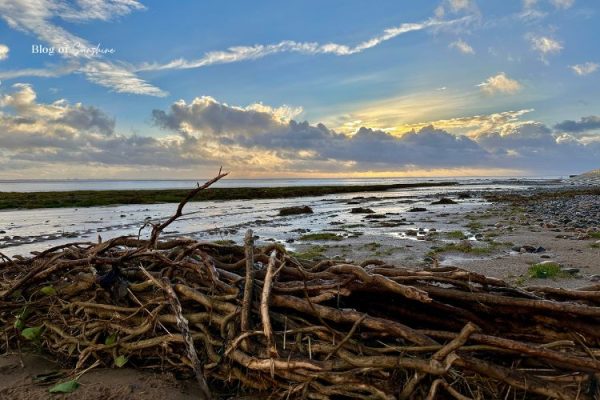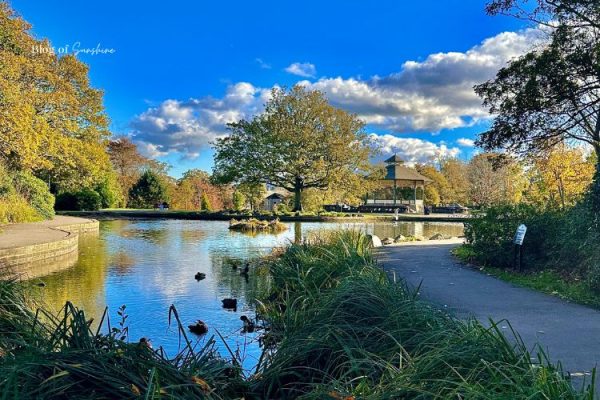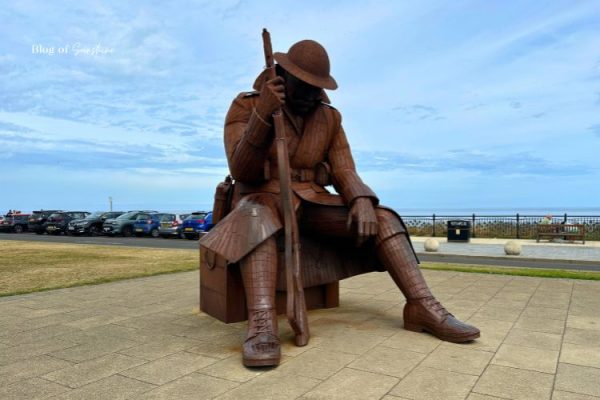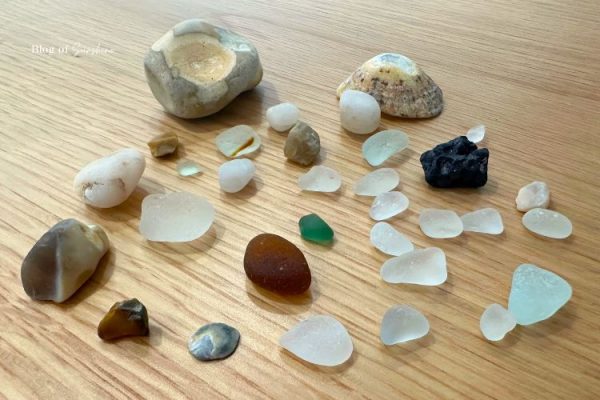Table of Contents
Looking for the best place to find sea glass in the UK? Seaham Hall Beach sea glass is world-famous for its rare colours, multicoloured fragments, and collector-grade quality. Located in County Durham on England’s northeast coast, this pebbled beach offers more than just sea views – it offers a chance to uncover a piece of history, tumbled smooth by time and tide.
In this guide, you’ll learn why Seaham Beach is so rich in sea glass, when to go, what colours to look for, and practical sea glass collecting tips to make your visit a success.
Why Is There So Much Sea Glass at Seaham Hall Beach?
Unlike most beaches where sea glass is rare, Seaham Beach has a unique industrial past. In the 19th and early 20th centuries, the Londonderry Bottleworks operated along the coast. This factory produced huge quantities of decorative and utility glass. Instead of proper waste disposal, they dumped excess, flawed, or leftover glass directly into the sea.
Decades of tumbling by waves and sand transformed this waste into what is now sought-after Seaham Hall Beach sea glass – smooth, frosted, colourful gems that wash ashore in surprising shapes and shades. Some pieces are known as “end-of-day glass” or “multicoloured sea glass Seaham”, created when leftover molten glass was swirled together and discarded at shift’s end.
Why Do People Collect Sea Glass?
For many, sea glass collecting is more than a hobby — it’s a relaxing and rewarding way to connect with the coastline. Each piece is a unique fragment of history. Some people create handmade jewellery, mosaics, or decorative items. Others just enjoy the thrill of the hunt.
And yes, people do sell Seaham sea glass, especially the rarer colours like cobalt blue, red, and multi-layered pieces. You’ll find listings on sites like
Etsy and eBay.
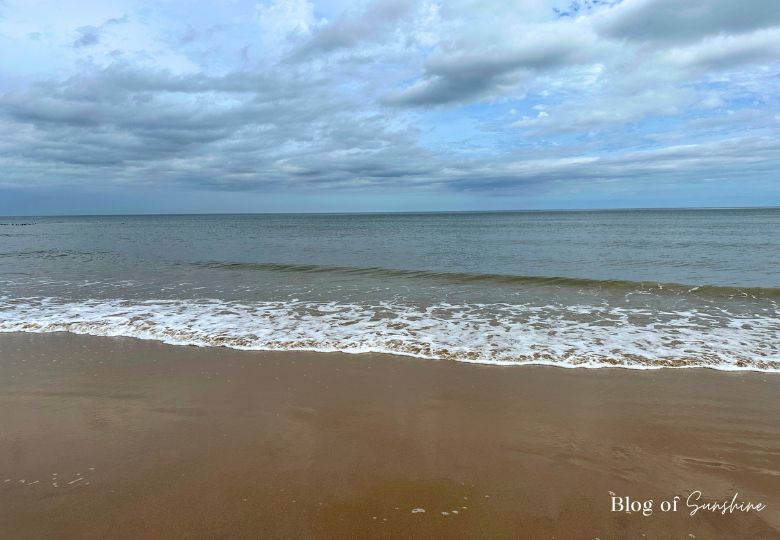
Rare Sea Glass Colours You Can Find at Seaham
Because of Seaham’s glassmaking history, you’ll find a far greater range of colours than on typical beaches. Common and rare examples include:
- Clear and green – Common, often from soft drink and beer bottles
- Brown/amber – Also common, often from medicine and beer containers
- Cobalt blue – Once used for medicine bottles; highly prized
- Milk glass (opaque white) – From cosmetics jars and decorative glass
- Red glass – Very rare, often from car lights or art glass
- Multicoloured sea glass – Known as “Multis,” these pieces show swirls or layers of different colours in one shard – unique to Seaham
Many collectors specifically search for these rare sea glass colours UK enthusiasts talk about. A single multicolour shard can be the highlight of your trip.
Here’s a peek at what you might collect on just one visit – this haul includes sea glass, shell fragments, sea-coal, and smooth pebbles. It’s a great reminder that every tide brings a surprise! Use a bucket or container to keep your finds safe, and remember to rinse them well after the hunt.
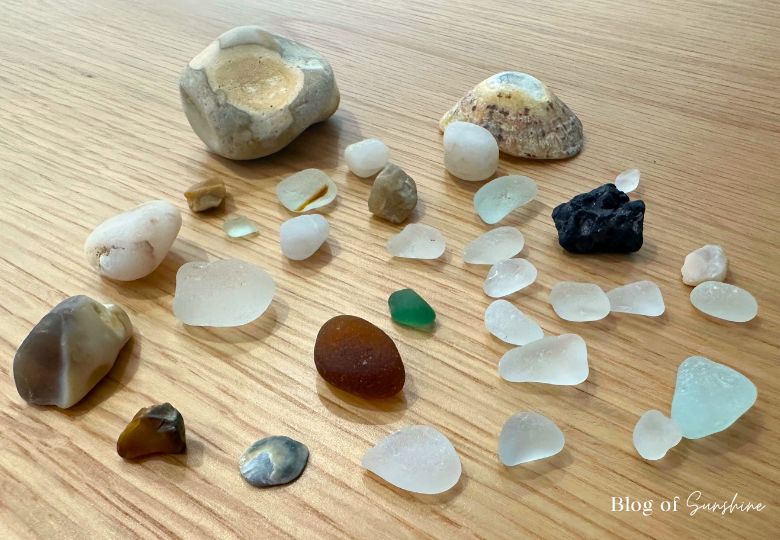
Tip: Look around rock pools, dig gently beneath pebbles, and focus near the waterline for the best picks.
For even better results, check out our guide on the best time to visit Seaham Beach for sea glass hunting tips in the section below.
Best Time to Go Sea Glass Hunting at Seaham
Knowing when to go sea glass hunting in Seaham will make a big difference in what you find. Follow these tried-and-true tips:
- Go at low tide – More of the shore is exposed, revealing fresh glass
- Check tide times for Seaham Beach using TidesChart.com
- Visit after storms or high winds – New glass is churned up and uncovered
- Early mornings are best – You’ll beat the crowds and get the freshest finds
Winter and early spring are especially good for rare finds, fewer people and rougher seas help turn up buried treasure.
What’s the Weather Like?
Seaham is located on the North Sea coast, so the weather can be brisk and changeable. Summers are cool, winters are damp, and strong winds are common year-round.
Layer up, wear waterproof shoes, and bring gloves if you’re collecting in colder months. The good news? Fewer people brave the beach in poor weather – meaning better chances of finding untouched glass.
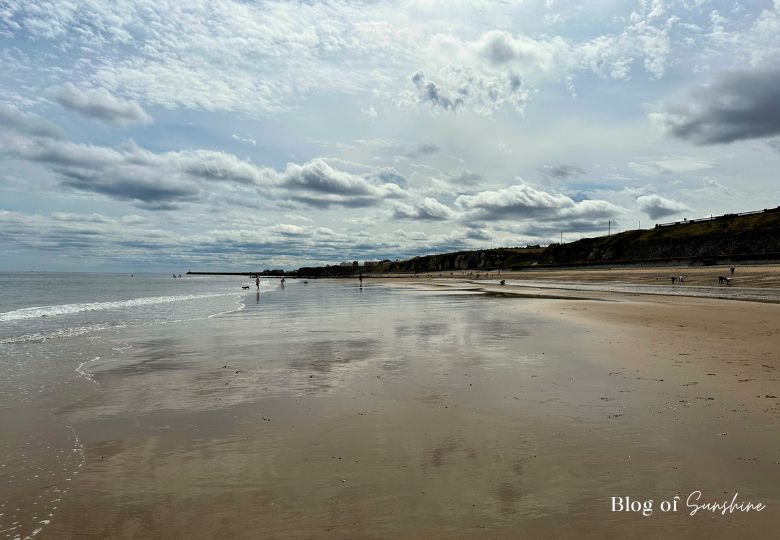
Tips for Collecting Sea Glass at Seaham
Here are some practical Seaham sea glass collecting tips to help you find the best pieces:
- Wear sturdy waterproof shoes – the beach is rocky and uneven
- Bring a soft pouch or mesh bag to carry your finds
- Look along the high tide line, where glass tends to settle
- Use natural light to spot glints of glass among pebbles
- Be selective – take only what you love, leave some for others
One of the biggest challenges for beginners is learning how to spot sea glass among all the pebbles. It often blends in with stones, shells, and coal until you train your eye to notice the frosted edges and smoother shape. In the photo below, you can see a small piece of sea glass highlighted — a reminder to always look carefully along the tide line and between the rocks.
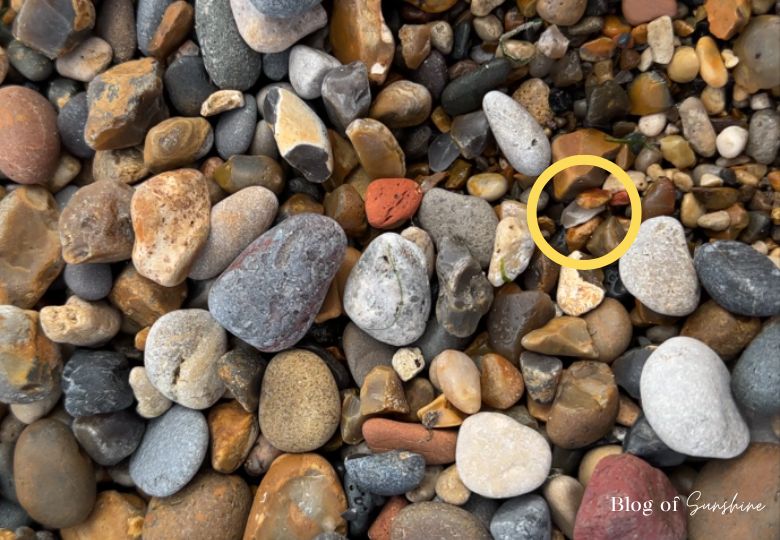
Seaham Hall Beach Car Park
If you’re planning a visit to Seaham Hall Beach to hunt for sea glass or enjoy the serene Durham Heritage Coast, you’ll be glad to know that parking is convenient and close to the beach.
The main car park for Seaham Hall Beach is located just off the seafront, offering plenty of space even on busy days. It’s a pay-and-display car park with clear signage, payment machines, and nearby litter bins to help keep the area clean.
The car park entrance is well-marked with a “Welcome to Seaham” stone sculpture and directional signage pointing towards the car park, coast, and other local points of interest.
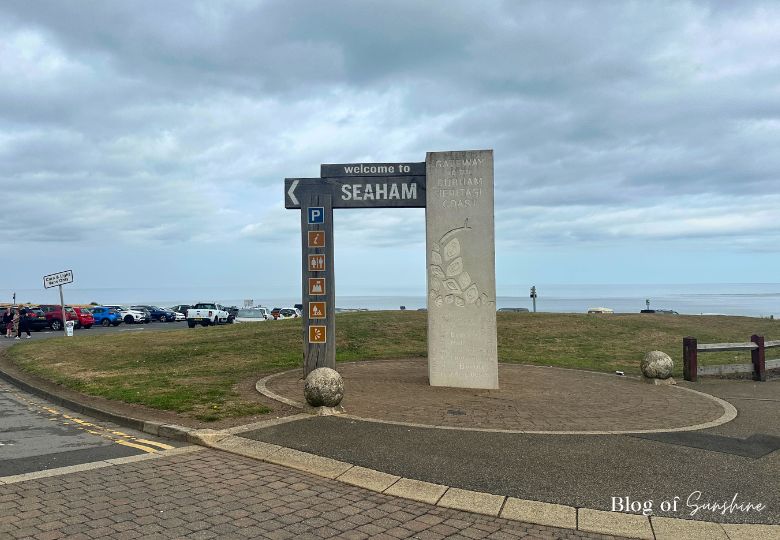
Parking charges vary slightly depending on the time of year and duration of your stay. The car park accepts card payments and displays all current charges on a large board near the entrance. As of the time of writing, prices are listed clearly and updated regularly by Durham County Council.
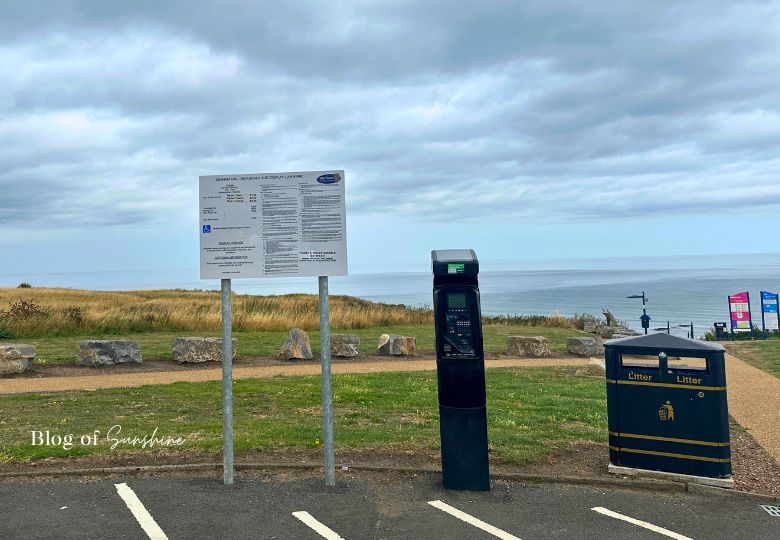
You’ll also find a plaque commemorating the Turning the Tide project, which played a key role in transforming the Durham coastline from its industrial past into the beautiful beach you see today.
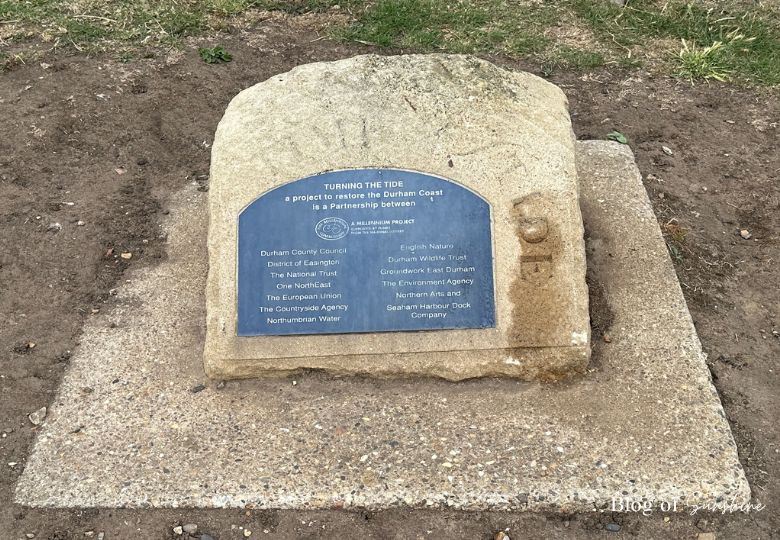
The car park offers easy access to Seaham Hall Beach, with a short paved path leading down to the shoreline. It’s perfect for visitors with strollers, wheelchairs, or anyone wanting a comfortable walk to the sea. There is a café in the car park with toilet facilities, which is useful. On the photo below, you can see Seaham Hall Hotel and Spa in the distance.

This well-maintained access path leads you directly from the parking area to the golden sands of Seaham Hall Beach, with stunning views of the coastline along the way.
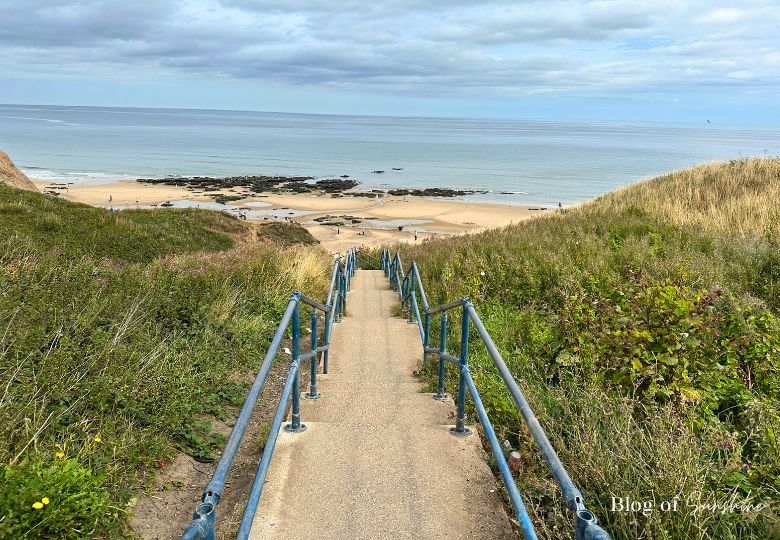
🌆 Quick Stops in Seaham Town
After your sea glass adventure, take a moment to enjoy Seaham’s charming town centre. It’s right by the beach and full of character:
- 🪖 See the famous “Tommy” WWI statue
- 🍦 Grab ice cream at Creams of Seaham
- 🍽️ Try fish & chips from Downey’s
- ☕ Explore local cafes, vintage shops & sea views
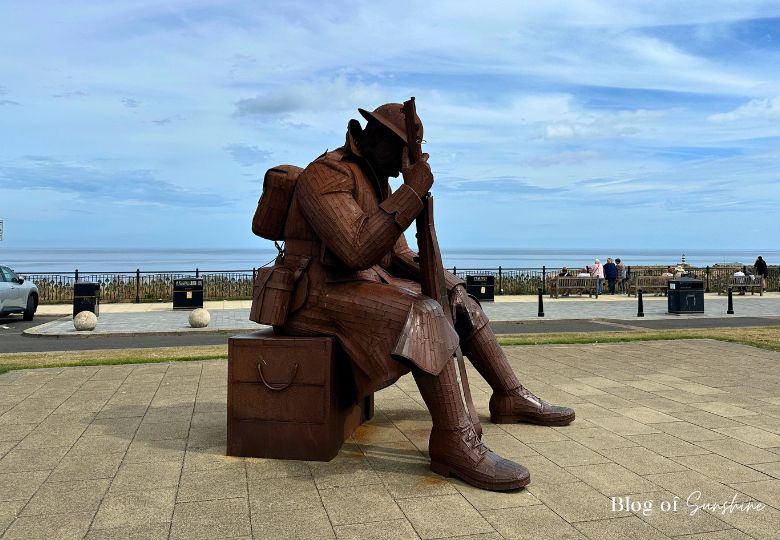
👉 Want the full list of places to eat, shop, and explore?
Read the full guide here:
Things to Do in Seaham After the Beach
FAQ: Seaham Hall Beach Sea Glass
Where is Seaham Hall Beach and why is it famous for sea glass?
Seaham Hall Beach is on the northeast coast of England in County Durham. It’s famous for its sea glass due to waste from the 19th-century Londonderry Bottleworks, which dumped glass into the sea. Over time, this has turned into smooth, colourful sea glass.
When is the best time to find sea glass at Seaham Hall Beach?
The best time to go is at low tide, ideally early in the morning or just after a storm. Winter and early spring are especially good seasons for rare finds and fewer crowds.
Is it legal to collect sea glass from Seaham Beach?
Yes, collecting small amounts of sea glass for personal use is allowed. Large-scale or commercial collecting is discouraged. Always collect responsibly and leave some for others.
What colours of sea glass can you find at Seaham?
Common colours include green, brown, and clear. Rarer finds include cobalt blue, milk glass white, amber, and even multicoloured “end-of-day” glass, which is unique to Seaham.
Can I sell sea glass found at Seaham?
Yes, many collectors sell rare or shaped pieces on platforms like Etsy and eBay. Just be mindful not to over-harvest — sustainable collecting is encouraged.
Are there parking facilities at Seaham Hall Beach?
Yes, there are several nearby car parks, including Seaham Marina Car Park and North Road Car Park. Most are pay-and-display, with charges from £1 to £4 depending on time and season.
Is Seaham Beach suitable for families and dogs?
Yes. The beach is dog-friendly and safe for families, though it’s rocky in parts. Dogs may need to be on leads in busy areas during summer months.
How do I clean sea glass after collecting it?
Rinse your sea glass in warm water and use a soft toothbrush to remove dirt. Avoid harsh chemicals — a gentle scrub is all it needs.
What else is there to do in Seaham?
Visit the famous Tommy statue on the seafront, enjoy local cafes, browse vintage shops, or walk along the harbour. Seaham is small but full of character and charm.
Where can I check tide times for Seaham Beach?
Check accurate tide times at TidesChart.com. Arrive around 30–60 minutes before low tide for the best sea glass hunting.
What are the rarest colours to find?
Red, orange, cobalt blue, and multicoloured pieces (called “Multis”) are among the rarest and most valuable.
Conclusion: Why Seaham Hall Beach is Worth the Visit
Seaham Hall Beach sea glass is more than just a quirky coastal feature – it’s a piece of industrial history transformed by nature. Whether you’re visiting for the day or planning a seaside weekend, the beach offers a relaxing, rewarding experience for collectors of all ages.
Seaham is part of the stunning Durham Heritage Coast, a protected stretch of coastline known for its beauty and wildlife.
With colourful glass underfoot, dramatic cliffs above, and a charming town nearby, Seaham is one of North East England’s hidden gems. Don’t forget your camera, a good pair of shoes, and a small bag – you never know what treasures you’ll find.
Planning more coastal adventures? Check browse our England travel guides for more ideas.
More England Travel Guides
If you loved exploring Seaham Hall Beach for sea glass, why not plan your next adventure along the English coast and beyond? From hidden seaside towns to historic cities and countryside escapes, our England travel guides will help you discover even more amazing places to visit.

